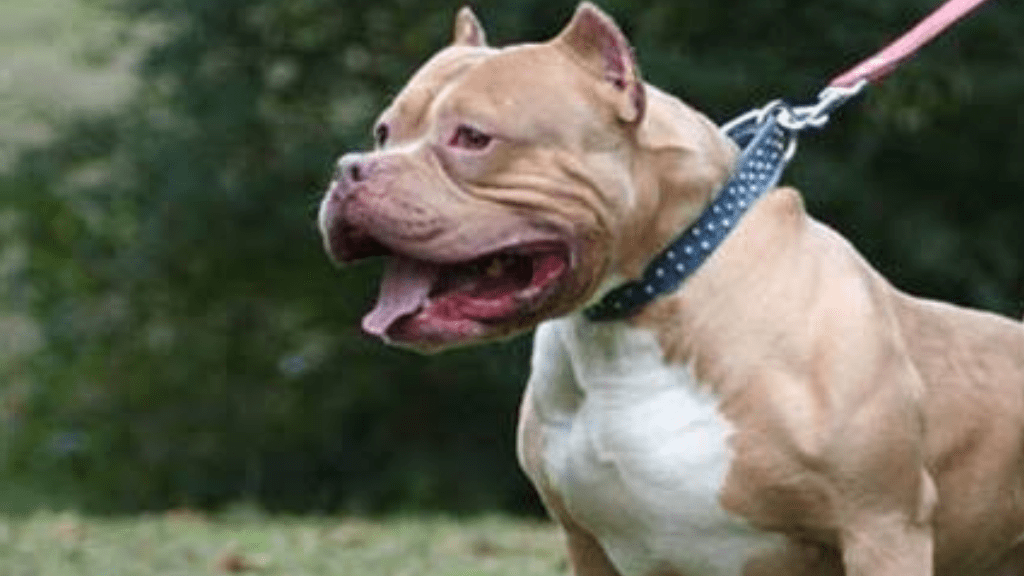Introduction
Explore the world of the most aggressive dog breeds and learn how to handle them. Discover breed-specific traits, training techniques, and responsible ownership practices to ensure safe coexistence.
Understanding aggression in dog breeds is crucial for promoting responsible ownership and ensuring the safety of both dogs and humans. Aggression is a complex behavior influenced by a variety of factors, including genetics, environment, and training.
The most aggressive dog breeds, we can debunk myths, shed light on breed-specific behaviors, and provide insights into effective management strategies.
Table of Contents
Factors Contributing to Aggression
Aggression in dogs is not solely determined by genetics but is also influenced by environmental factors and early experiences. While certain breeds may have a genetic predisposition to aggression, the way they are raised and trained plays a significant role in shaping their behavior.
Genetics can play a role in predisposing certain breeds to exhibit aggressive behaviors. Breeds bred for guarding, protection, or fighting purposes, such as the Pit Bull Terrier and the Rottweiler, may have a higher likelihood of displaying aggressive tendencies. However, it’s essential to note that genetics alone do not determine a dog’s behavior.
Environmental factors, including early socialization and experiences, can significantly impact a dog’s temperament. Dogs that are poorly socialized or subjected to neglect or abuse are more likely to exhibit aggressive behaviors. Additionally, the way a dog is trained and handled by its owner can either reinforce or mitigate aggressive tendencies.
Classification of Aggressive Dog Breeds
1. Pit Bull Terrier

2. Rottweiler
3. German Shepherd
4. Doberman Pinscher
Misconceptions vs. Realities
Despite the stereotypes surrounding aggressive breeds, it’s essential to recognize that individual variation exists within every breed. While certain breeds may have a higher predisposition to aggression, factors such as upbringing, training, and socialization play a significant role in shaping a dog’s behavior.
One common misconception is that aggression is solely determined by breed, leading to blanket assumptions about a dog’s behavior based on its breed alone. However, research has shown that a dog’s environment and early experiences are equally, if not more, influential in determining its temperament.
Additionally, breed-specific legislation aimed at banning or restricting certain breeds fails to address the root causes of aggression and can unfairly target well-behaved dogs based on their appearance alone. Instead of focusing on breed-specific bans, efforts should be directed towards promoting responsible ownership practices, including proper training, socialization, and supervision.
Management and Prevention
Responsible ownership plays a crucial role in managing and preventing aggressive behaviors in dogs. By understanding a dog’s breed-specific traits and needs, owners can provide appropriate training, socialization, and supervision to ensure their dog’s well-being and the safety of others.
Early socialization is key to preventing aggression in dogs, regardless of breed. Exposing puppies to various people, animals, and environments during their critical developmental period helps them develop positive associations and coping mechanisms for different situations.
Training methods based on positive reinforcement and reward-based techniques are effective in shaping desired behaviors and preventing aggression. Punitive methods such as physical punishment or dominance-based training can exacerbate aggression and erode the bond between dogs and their owners.
In addition to training, proper management techniques can help prevent situations that may trigger aggressive behaviors in dogs. This includes using leashes and secure fencing to prevent escape or confrontations with other animals, as well as providing adequate mental and physical stimulation to prevent boredom and frustration.
Legal Considerations and Breed-Specific Regulations
In many jurisdictions, breed-specific legislation (BSL) has been implemented in an attempt to reduce dog-related incidents by targeting specific breeds deemed to be dangerous or aggressive. However, BSL has been widely criticized for being ineffective, discriminatory, and based on flawed assumptions about breed-related behavior.
Instead of focusing on breed-specific bans, experts advocate for laws and regulations that address responsible dog ownership practices, such as licensing, leash laws, and dangerous dog ordinances. These measures hold owners accountable for their dogs’ behavior regardless of breed and promote education and awareness about canine behavior and responsible ownership.
Conclusion
Understanding aggression in dog breeds requires a nuanced understanding of the factors that contribute to aggressive behaviors, including genetics, environment, and training.
While certain breeds may have a higher predisposition to aggression, individual variation exists within every breed, and responsible ownership practices are essential for preventing and managing aggressive behaviors.
By promoting early socialization, positive reinforcement training methods, and proper management techniques, owners can help their dogs develop into well-adjusted and balanced companions.
Additionally, efforts to address aggressive behaviors should focus on education, awareness, and responsible ownership practices rather than blanket breed-specific bans or regulations.
Through collaboration between owners, communities, and policymakers, we can work towards creating safer environments for both dogs and humans.
FAQs
1. Are certain dog breeds inherently aggressive?
2. Which breeds are commonly associated with aggression?
3. How can I prevent aggression in my dog?
4. What should I do if my dog displays aggressive behavior?
5. Are aggressive dog breeds suitable for families with children?
6. How can I be a responsible owner of an aggressive breed?
- You might be interested in reading this posts as well